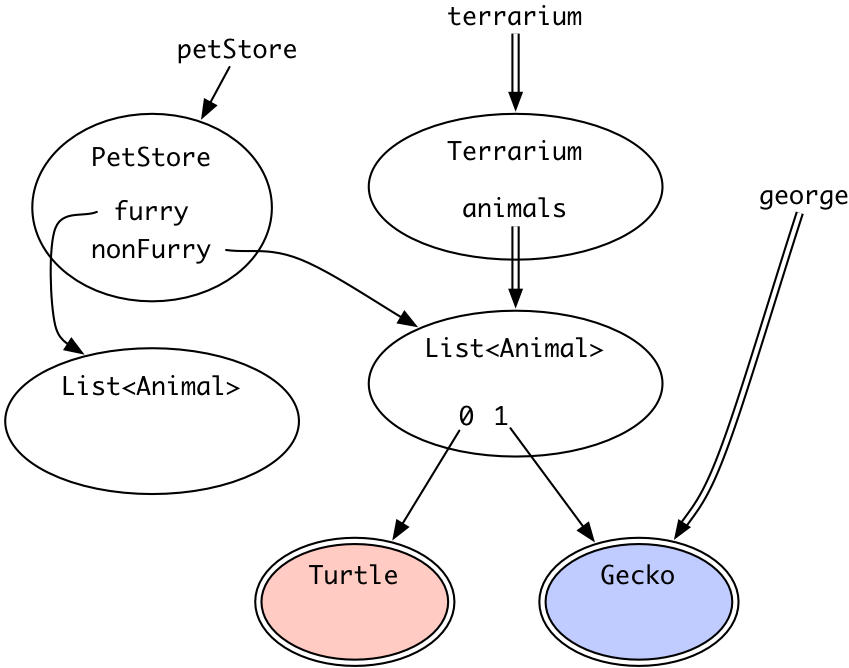Why Are Strings Immutable in Java? Secret Factors and Advantages Clarified
Why Are Strings Immutable in Java? Secret Factors and Advantages Clarified
Blog Article
Unalterable Strings: A Key Element in Ensuring Information Uniformity and Integrity
In the realm of data management, the significance of immutable strings can not be overstated. The concept of immutable strings transcends plain technicality; it is a cornerstone in the complex web of data governance.
The Concept of Immutable Strings
Unalterable strings, an essential concept in shows, refer to strings that can not be customized as soon as they are developed. Basically, once a string value is designated, any type of procedure that appears to modify the string really develops a new string. This immutability makes certain information consistency and reliability in applications, as it stops unexpected modifications to the initial information.
Benefits in Data Uniformity

Information consistency is important in different facets of software application advancement, consisting of database administration, multi-threaded atmospheres, and distributed systems (Why are strings immutable in Java?). Immutable strings contribute significantly to accomplishing this uniformity by avoiding data corruption as a result of simultaneous access. In situations where several procedures or threads interact with the very same information concurrently, immutable strings function as a guard versus race conditions and synchronization issues
Additionally, the immutability of strings simplifies debugging and screening procedures. With unalterable strings, designers can rely on that when a string is set, it will continue to be unchanged, making it easier to trace the resource of errors and guaranteeing that examination cases create consistent outcomes. This reliability in information handling eventually leads to a lot more durable and stable applications.

Implementing Immutable Strings
Ensuring the immutability of strings requires a thoughtful approach to their execution in software application development. One key approach is to create string courses in a method that avoids modifications as soon as a string item is developed. By making strings unalterable, designers can improve information consistency and integrity in their applications.
To carry out unalterable strings efficiently, designers must prefer creating brand-new string objects rather than modifying existing ones. This technique ensures that once a string is assigned a value, it can not be transformed. Additionally, any type of procedure that appears to modify the string should develop a new string with the wanted changes as opposed to altering the original.
Additionally, using immutable strings can streamline concurrency monitoring in multi-threaded environments. Since unalterable strings can not be changed after creation, they can be safely shared among multiple threads without the threat of information corruption.
Function in Dependability Guarantee
In software program advancement, the application of immutable strings plays a critical role in guaranteeing the integrity of data procedures. Unalterable strings, as soon as developed, can not be modified, ensuring that the information they represent stays regular throughout the application's implementation. This immutability building provides a degree of guarantee that the data being processed will not be accidentally altered, causing unforeseen results or mistakes in the system.
By incorporating unalterable strings into software application design, programmers can boost the integrity of their applications by decreasing the dangers connected with mutable information - Why are strings immutable in Java?. Immutable strings help in preventing information corruption or unplanned modifications, which can be especially vital when dealing with delicate info or when data honesty is extremely important
In addition, the use of immutable strings simplifies concurrent handling, as multiple strings can securely gain access to and share string data without the threat of one string modifying the material while one more reads it. This aspect adds significantly to the total integrity of the software system, guaranteeing constant and predictable habits in information handling procedures.
Applications and System Assimilation
The seamless integration of unalterable strings into various applications and systems is crucial for ensuring durable data uniformity and reliability throughout diverse technological environments - Why are strings immutable in Java?. Unalterable strings play an important role in boosting the honesty of data exchanges and communications within complex software ecosystems. By including unalterable strings into applications, programmers can alleviate the threats related to information meddling, unapproved modifications, and unintentional changes, thus strengthening the overall check it out protection stance look at here now of the system
In the context of system combination, immutable strings work as a fundamental aspect for developing safe and secure communication networks and helping with smooth data transfers between various components. Their immutable nature makes sure that data sent between systems remains unmodified and verifiable, minimizing the likelihood of variances or mistakes that might compromise the integrity of the entire system. In addition, unalterable strings can improve interoperability in between disparate systems by supplying a standardized layout for information depiction, enabling more reliable information processing and exchange methods across interconnected systems. By embracing unalterable strings in applications and system assimilation processes, companies can strengthen their information infrastructure and maintain the reliability and uniformity of their info assets.
Verdict
To conclude, unalterable strings play an important duty in maintaining information consistency and reliability in different applications and system integrations. By ensuring that strings can not be transformed when developed, the stability of data is protected, reducing the risk of mistakes and variances. Executing unalterable strings can substantially improve the integrity of systems, inevitably causing more reputable and precise data processing.
Report this page